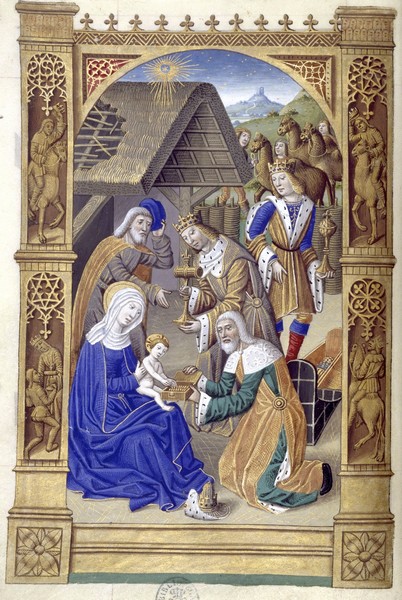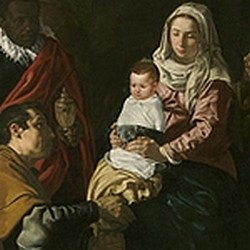
Luciano Berio liked traditional music, but he felt some kind of uneasiness when he listened to the usual arrangements for voice and piano made by his colleagues. The reason for this uneasiness was, I would say, that the piano has never been a traditional instrument; folk songs are often unaccompanied and, when accompanied, the instruments are simple, such as flute or guitar. For this reason, in his collection Folk Songs, the voice (not placed voice) is accompanied by an ensemble of seven instrumentalists who play flute or piccolo, clarinet, harp or guitar, cello, viola and percussion. In other words, by instruments that we can associate (usually in their most primitive versions) with traditional music. The composer tried to "underline and comment on the expressive and cultural roots of each song" and giving them "a new rhythmic and harmonic interpretation". Folk songs was a commission for the Mills College (California), where Berio was teaching, and premiered in November 1963; ten years later he published a new version for mezzo and orchestra.
Berio and his wife, mezzo-soprano Cathy Berberian, listened to old recordings and to folk musicians and friends and looked into the published anthologies to choose the songs. Finally, the eleven pieces included songs from Auvergne, Provence, Sicily, Sardinia, Armenia, the United States and even Azerbaijan; apparently, Berio and Berberian loved a song from this country that they heard on a recording and, given that they didn't know the language, the singer made up a phonetic approximation.
Guess which American song Berio included on the album. Exactly, I wonder as I wander. And not only this song by Niles, but also Black is the color of my true love's hair, his best-known song (thanks mainly to Joan Baez or Nina Simone's versions). I assume that, unlike Britten, Berio already knew that I wonder as I wander wasn't really a traditional song, and agreed upon the royalties with Niles. The composer himself contributed to the cycle Folk Songs with two songs that were only "intentionally popular": he had composed them in 1947. This little mess of folk songs, not-so-folk songs or intentionally folk songs isn't really different from Herder's theories two hundred years earlier, don't you think?
The Three Wise Men brought us the third, last version of I wander as I wander, performed by Cathy Berberian, the Juilliard Ensemble and Luciano Berio conducting. As you can hear, the harp, clarinet, viola and cello accompany the voice at the beginning; the flute is added later, which becomes more prominent in a postlude almost as long as the song.
Next week we're listening to a new song, don't worry. I chose Britten's version of I wonder as I wander as the first Christmas song this year (by far my favourite, partly thanks to Finley's great voice) and, pulling the thread, I found the other versions (there are more, just in case you need it) and I thought I would do this little experiment.
I wonder as I wander out under the sky,
How Jesus our Saviour did come for to die.
For poor or’n’ry people like you and like I,
I wonder as I wander out under the sky.
When Mary birthed Jesus ’twas in a cow stall,
With wise men and shepherds and farmers and all.
On high from God’s heaven the star’s light did fall,
And the promise of the ages it did then recall.
If Jesus had wanted for any wee thing,
A star in the sky, or a bird on the wing;
Or all of God’s angels in heav’n for to sing,
He surely could’ve had it for he was the King!



 My dea...
My dea...










